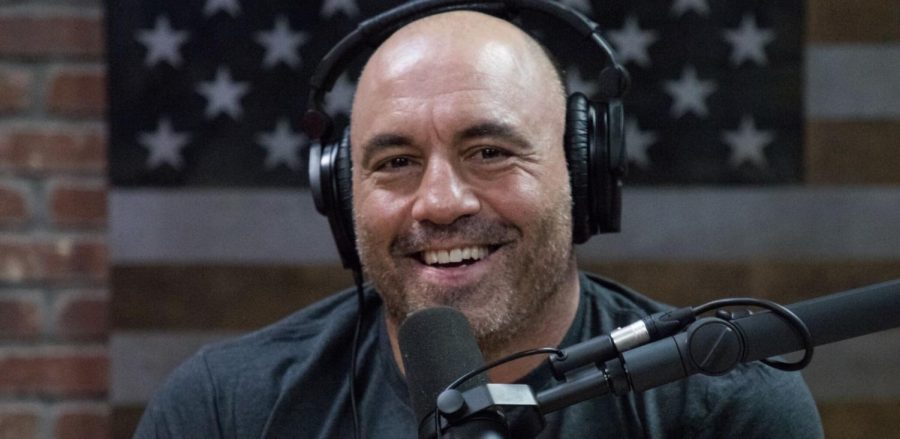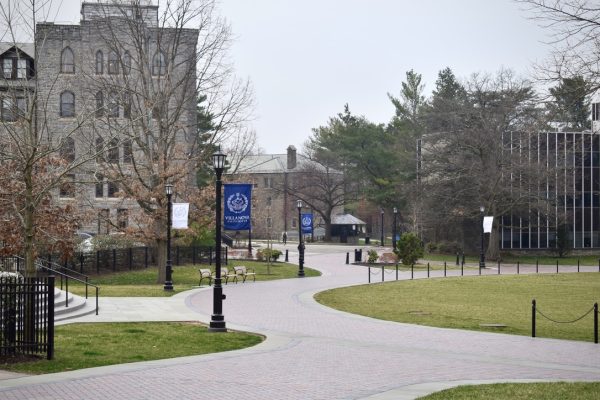Joe Rogan and the Importance of Alternative Media
Joe Rogan and the Importance of Alternative Media
September 23, 2020
On Sept. 14, Donald Trump responded “I do!” to a tweet from retired MMA fighter Tim Kennedy. The tweet was an invitation to a four hour presidential debate on the Joe Rogan Experience — Joe Rogan’s characteristically eclectic and colorful podcast — during which there would be no live audience, and the two presidential candidates would be free to discuss their “vision of how to move the country forward.” A four hour long dialectic between two presidential candidates with no live audience is something that would be completely unprecedented in recent U.S. political history, let alone the fact that it would be moderated on a podcast by an MMA commentator known for his fascination with psychedelics.
It’s no secret that Rogan and his podcast are cultural titans. In April 2019, the Joe Rogan Experience boasted over 190 million downloads each month, not to mention the additional millions of views on YouTube. These numbers rival and even surpass those of several mainstream media outlets. Since then, the podcast has grown even more, and the recent high-profile exclusivity deal between Rogan and Spotify for $100 million has garnered even more publicity for the show. The power of such a move was also evident in Spotify’s stock, as its market cap increased by $1.7 billion minutes after the news broke.
Now, to be fair, it’s highly unrealistic that this debate would actually come to pass. While I and probably millions of others would love to see it, I do not believe that either candidate has the stamina or patience for such a thing. Trump has historically relied on a lively, responsive audience to feed his energy through long rallies. Joe Biden’s energy levels have been called into question as well, particularly by his opponent, President Donald Trump. Regardless of the practical unlikelihood, it would be fascinating to see how the candidates’ attitudes towards each other evolve over the course of the four hours. Maybe they can come to agreement on certain things and accept disagreement on others, or perhaps the chasm between them is so insurmountable as to prevent any real productive discussion. Being something of an optimist, and given that Joe Rogan would be moderating, I’d like to believe that such a debate would do more to improve the political environment than deteriorate it. Sadly, we may never know.
What’s more interesting to note is the impact that such a debate would have on the political landscape and the power of traditional media. If both candidates were to agree to such an unorthodox event, the mainstream media channels, which have historically held a monopoly on access to the candidates, would lose much of their influence. A debate on the Joe Rogan Experience would open up the door for independent journalism and nontraditional media to fundamentally change the structure of the American political machine and information ecology. Namely, voters would be able to “get to know” the candidates in ways they haven’t before; long form discussions, as opposed to sound-bite ridden TV segments, force the candidates to flesh out their ideas. Seeing a candidate on-screen for four hours would also permit a more nuanced understanding of that candidate’s true demeanor, revealing how they would interact with those they would encounter in office. It is easy to maintain a high-energy, friendly visage for 20 minutes on TV; it is almost impossible to maintain that same disposition for four hours in a low energy environment unless, of course, that is the candidate’s true demeanor.
Therein lies another reason that establishment candidates are unlikely to accept such offers: they rely heavily on a carefully planned and crafted public image, marketed to the people in short bursts on mainstream media channels. Because they would not be able to maintain this image on independent media platforms, they are incentivized to reject such invitations for fear of the voting public seeing them in an unplanned, and possibly less than flattering, environment. Anti-establishment candidates, on the other hand, rely on their authenticity as their unique selling proposition, and thus are not afraid of long exposure in non-traditional media settings.
All the major anti-establishment candidates (Tulsi Gabbard, Andrew Yang, Bernie Sanders) have appeared on Joe Rogan’s podcast, as well as other podcasts, including the H3 Podcast, Freakonomics Radio and Making Sense with Sam Harris. Their nontraditional brand naturally includes nontraditional media exposure.
The growth of nontraditional media, in all its various forms, has and will continue to change the way voters interact with information. It gives independent commentators a platform for expressing their opinions free from the outside influences and perverse financial incentives that are characteristic of traditional media outlets. As these more informal means of communication become more popular, candidates would be wise to leverage them to connect with younger voters who increasingly value authenticity and personability.








